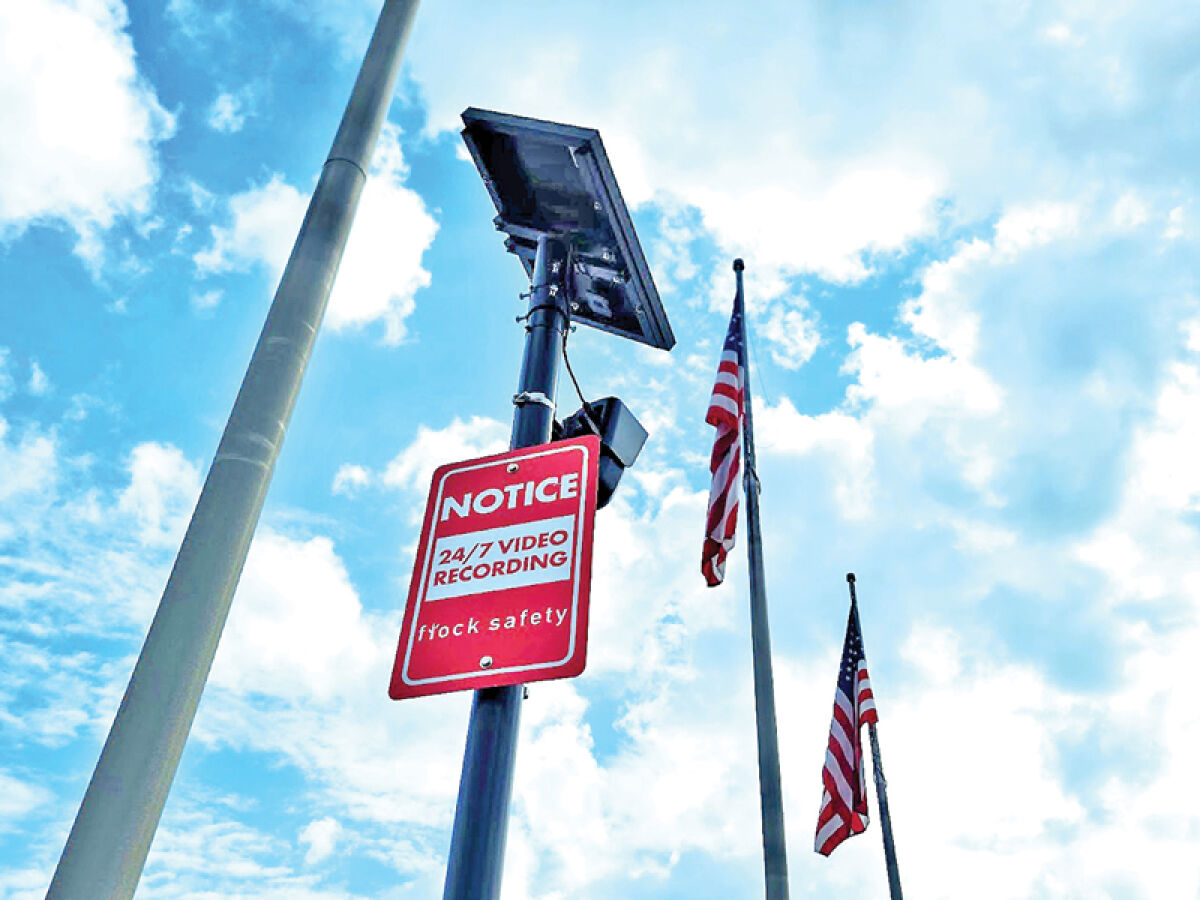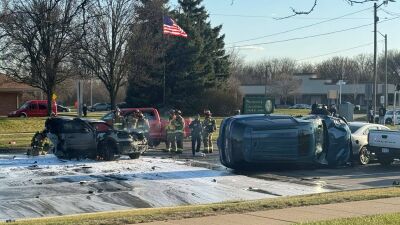ST. CLAIR SHORES — The St. Clair Shores City Council approved the purchase of a Flock Safety camera system with a five-year contract through a 5-0 vote at its April 7 meeting.
Councilwoman Candice Rusie and Councilwoman Linda Bertges were excused from the meeting.
St. Clair Shores Police Chief Jason Allen presented the item before the council.
According to items attached to the meeting’s agenda, the St. Clair Shores Police Department asked for 12 Flock cameras with a one-time installation fee totaling $7,800 and a $36,000 yearly fee to use the system.
“Automated License Plate Readers (ALPRs), such as those from Flock Safety, are camera systems that capture and analyze vehicle license plates to enhance security, law enforcement, and traffic monitoring,” the attached background material indicates. “These cameras can search for specific vehicle descriptions or partial plate numbers and automatically notify dispatch of National Crime Information Center (NCIC) alerts, including stolen vehicles, wanted individuals, and missing persons.”
Allen said the cameras take still photos that are stored in the systems for around 30 days.
“If we need to access that information, it’s there for us,” Allen said. “If it’s not utilized, we never see it and it’s purged from the system.”
The department previously had free access to the system, but that will be ending soon. The Flock cameras would be used for crimes that occur in the city, including searches for stolen vehicles. Allen said the purchase would be paid for using drug forfeiture funds and that the cameras are estimated to be installed in two months.
Councilman and Mayor Pro Tem Dave Rubello said safety is the No. 1 thing the council has to look at. He also asked for periodic updates on the usefulness of the cameras.
“Because a lot of people, when they hear cameras, they think they’re being looked at or, you know, (that it is a) violation of whatever they’re doing,” Rubello said. “We don’t use it for that type of thing. We’re fighting crime.”
Councilman John Caron said Rusie had “significant remarks” in terms of policies that are still being worked out. He also said there is a major concern about what happens with the images once they are taken by the cameras.
“This will be housed for a limited period of time and then purged from the system, and if anything needs to be retained, it’s going to be retained per a very specific case,” Caron said.
He said the information will not be saved and only a limited number of officers will have access for particular cases. All of the usage is going to be tracked, Caron said, so no system abuse occurs.
“I appreciate all the discussion and all the information we’ve gotten since then,” Caron said.
He said he sent an article about system misuse in Detroit to Allen and that he has confidence the department is not going to do that.
“I trust our Police Department,” Caron said. “This is going to be a new tool for them. They’re going to use it correctly, use it appropriately, and then we’ll have the policy in place to ensure that going forward.”
Councilman Chris Vitale said a couple of council members raised a number of issues at study sessions.
“The quickest way to describe (it) is that the cameras don’t initiate investigations,” Vitale said. “The cameras would be a tool used for an investigation.”
He said they aren’t speed cameras or anything similar to that and reiterated they will be used to aid investigations.
A statement in the policy said the images can be used by prosecutors, and Vitale asked if the defense would also have access to it. City Attorney Robert Ihrie said any information would be required to be shared with the defense.
 Publication select ▼
Publication select ▼






















